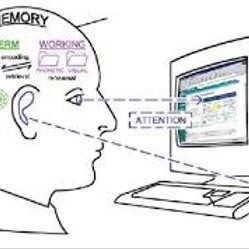Procrastination—according to the Webster’s Dictionary is “the action of delaying or postponing something” – “to defer action; delay: to procrastinate until an opportunity is lost.”
According to research, 85% of high school students procrastinate.
I hesitate when diagnosing a student with procrastination. In the field of higher education, the ‘P’ word (procrastination) like the ‘L’ (lazy), are often used to describe students that exhibit the signs of procrastination.

Cramming as a Strategy
Cramming as a primary strategy is far too common for teens. Most high school students need to cram in order to keep up with the demands of assessment, homework, papers, projects, presentations, sports, activities, etc…
What About College Students?
Do college bound students get to college and quickly adopt new time management skills, study strategies and stress management techniques in order to handle all their to-do-lists, assignments, and pressures?
The answer — well, you guessed it! NO! The answer is “no” – and sometimes this reality has significant implication on test scores, admission into competitive programs, stress, anxiety, and the overall college experience.
For most, cramming is a learned behavior. Ok – so you may be thinking, “so what, I get it all done” — right?!
Consider this—cramming interferes with processing and building conceptual understanding of the material. The underlying concern is, often times, students learn how to engage in quick processing and memorization.
Learn Good Habits BEFORE Getting to College.
Like other Independent Educational Consultants, I want to understand the mechanisms of behavior that underlie procrastination, this in order to help teens build strong habits BEFORE going to college.

Cramming has become a survival strategy and not a learning strategy.
Why is cramming problematic? — Don’t we all do this in our academic and professional lives?
It is not a good practice. Cramming heavily relies on memorization and multitasking. When we don’t have time to deeply process information,, which affects the ability to connect new information with what we already know, we crate information in our brain that is shallow and temporary. This, just enough to pass a test or write a passable essay.
Deep learning and concept building necessary for the production of quality work is often times missed.
College bound students that learn strategies for overcoming limitations before they get to college are best served.

Cognitive Load Theory
Cognitive Load Theory not only provides a way of helping students understand cognitive limitations, it provides strategies for overcoming limitations.
Independent Educational Consultants (IECs) use the college application process to teach new strategies and habits to college bound students. Students are guided through a complex and high stakes process.
The long game…
IECs can help college bound students develop and strengthen new habits while they approaches their new journeys—college and beyond.
In the mean time…
Chunking is a powerful way to optimize working memory. It requires you to break down information into meaningful and important categories, which allows for coordination, organization, and the sorting of intrinsic tasks while acknowledging extrinsic distractions.
Try This!


